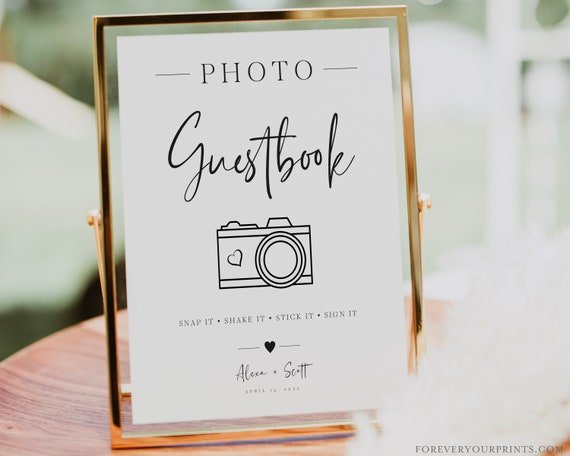Sure! Here is the introduction for your blog post on small business photography:
—
Welcome to thebestphotostudio! In this article, we will explore the importance of small business photography and how it can elevate your brand image. Discover how professional images can make a significant impact on your marketing efforts and attract more customers. Let’s dive in!
Unleashing the Power of Small Business Photography: Tips and Strategies
Unleashing the Power of Small Business Photography: Tips and Strategies in the context of Business Photography can truly elevate your brand and help you stand out in a crowded marketplace. Whether you are a small business owner looking to showcase your products or services, or an entrepreneur aiming to build a strong personal brand, photography plays a crucial role in telling your story visually.
Quality photography can make a significant impact on how your audience perceives your business. Investing in professional photography can provide you with high-quality images that capture the essence of your brand and set you apart from competitors. Remember, images are often the first point of contact between your business and potential customers, so make sure they make a strong impression.
When it comes to small business photography, consistency is key. Establishing a cohesive visual style that reflects your brand identity across all your marketing materials can help reinforce your brand image and make it more memorable to your audience. This includes maintaining a consistent color palette, using similar compositions and lighting techniques, and ensuring that your photos align with your overall brand messaging.
In addition to showcasing your products or services, consider using photography to give a glimpse behind the scenes of your business. Authentic and candid shots of your team members at work, your workspace, or the process of creating your products can help humanize your brand and build trust with your audience. People connect with stories, so use photography to tell the story of your business and create a deeper connection with your customers.
In conclusion, harnessing the power of photography in your small business can have a lasting impact on your brand’s success. By investing in quality photography, maintaining a consistent visual style, and using images to tell your brand’s story, you can elevate your business and create a strong and memorable presence in the market.
3 TIPS for Photographing a Small Business or Brand
Small business photography – how to make money by photographing businesses
Is LLC good for photography?
Forming an LLC (Limited Liability Company) can be a great option for photographers in the Business Photography sector. An LLC provides a level of legal protection for your personal assets in case of any liabilities related to your photography business. It also offers certain tax benefits and flexibility in terms of management structure. Additionally, having an LLC can help you establish a more professional image and build credibility with clients. However, it’s important to consult with a legal or tax advisor to determine if an LLC is the best business structure for your specific situation and goals.
What is the average cost to start a photography business?
The average cost to start a photography business can vary depending on factors such as the type of photography you plan to specialize in, the equipment you already own, and whether you will operate from a physical studio or work remotely.
In general, starting a photography business can cost anywhere from $2,000 to $10,000 or more. Here are some of the key expenses involved:
1. Camera equipment: This includes cameras, lenses, tripods, lighting equipment, memory cards, and other accessories. Quality camera gear can be a significant upfront cost.
2. Editing software: Investing in professional editing software such as Adobe Lightroom and Photoshop is essential for enhancing and retouching your photos.
3. Website and marketing: Building a professional website to showcase your portfolio, as well as investing in marketing materials and online advertising to attract clients.
4. Legal and insurance: Registering your business, obtaining necessary licenses, and purchasing liability insurance to protect yourself and your equipment.
5. Studio space: If you plan to operate from a physical studio, you will need to consider rent, utilities, and furnishings.
It’s important to create a detailed business plan and budget to estimate your specific costs accurately. Additionally, consider starting small and gradually investing in more equipment and resources as your business grows.
How much should I charge for a photograph?
When determining how much to charge for a photograph in the context of Business Photography, there are several factors to consider. These include your experience level, the complexity of the project, the intended use of the image, and the client’s budget.
It is important to value your time and expertise when setting your rates. Many photographers use an hourly rate as a starting point and then adjust it based on the specific project requirements. Additionally, consider any expenses you may incur, such as equipment rental or travel costs, and factor those into your pricing.
Another common pricing model for Business Photography is usage-based licensing. This involves charging a fee based on how the client intends to use the photograph. For example, a higher fee may be justified for a photo that will be used in a national advertising campaign compared to one that will only be used on social media.
Ultimately, the best way to determine how much to charge for a photograph is to research industry standards, consider the specifics of the project, and communicate openly with your client about your pricing structure. Remember to value your work and ensure that you are being fairly compensated for your time and talent.
Can you operate a photography business from home?
Yes, you can operate a photography business from home. Many photographers choose to run their business from home because it offers flexibility and cost savings. However, there are some important considerations to keep in mind. Make sure to have a dedicated workspace with proper equipment and good lighting. Additionally, it’s crucial to differentiate between your personal and professional life to maintain a sense of professionalism. Finally, be aware of any zoning laws or regulations that may affect running a business from home in your area. With careful planning and organization, running a successful business photography from home is definitely possible.
Frequent Questions
What equipment do I need to start a small business photography?
To start a small business photography, you will need: a high-quality camera, lenses, a tripod, lighting equipment, memory cards, and editing software.
How can I effectively market my small business photography services?
Utilize social media platforms to showcase your portfolio and engage with potential clients. Collaborate with local businesses for cross-promotion and networking opportunities. Offer promotions or discounts to attract new clients and encourage repeat business. Optimize your website for search engines to increase visibility online. Participate in photography contests or events to showcase your skills and gain recognition in the industry.
Is it necessary to have a professional photography background to succeed in small business photography?
No, it is not necessary to have a professional photography background to succeed in small business photography.
In conclusion, small business photography plays a crucial role in establishing a brand identity, enhancing online presence, and connecting with customers on a personal level. By investing in professional photography services, small businesses can elevate their visual content and stand out in a competitive market. Remember, a picture is worth a thousand words, so make sure your images speak volumes about your business and its values. Stay focused on quality, creativity, and consistency to leave a lasting impression and drive growth for your small business through the lens of Business Photography.







